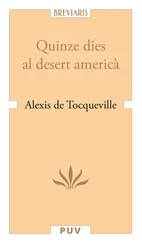Let us take the most invidious of all these privileges, that of exemption from taxation. 38 38 See Note XXXII., Extent of Exemptions from Taxation.
It is easy to perceive that from the fifteenth century until the French Revolution, this privilege was continually increasing, and that it increased with the rapid progress of the public burdens. When, as under Charles VII., only 1,200,000 livres were raised by the taille
Конец ознакомительного фрагмента.
Текст предоставлен ООО «ЛитРес».
Прочитайте эту книгу целиком, купив полную легальную версию на ЛитРес.
Безопасно оплатить книгу можно банковской картой Visa, MasterCard, Maestro, со счета мобильного телефона, с платежного терминала, в салоне МТС или Связной, через PayPal, WebMoney, Яндекс.Деньги, QIWI Кошелек, бонусными картами или другим удобным Вам способом.
I have more especially used the archives of some of the great Intendancies, particularly that of Tours, which are very complete and relate to a very extensive district placed in the centre of France, and peopled by a million of inhabitants. My thanks are due to the young and able keeper of these records, M. Grandmaison. Other districts, amongst them that of the Île-de-France, have shown me that business was transacted in the same manner in the greater part of the kingdom.
Letters on a Regicide Peace.
See Note I., on the Power of the Roman Law in Germany.
See Note II., on the passage from Feudal to Democratic Monarchy.
See Note III., on the Decay of the Free Towns of Germany.
Burke’s speech on the Army Estimates, 1790.
See Note IV., Date of Abolition of Serfdom in Germany.
See Note V.
See Note VI.
See Note VII., Peasant Lands in Germany.
See Note VIII., Nobility and Lands on the Rhine.
See Note IX., Effect of Usury Laws on Land.
See Note X., Abuse of Feudal Rights.
See Note XI., Ecclesiastical Feudal Rights.
See Note XII., Rights of the Abbey of Cherbourg.
See Note XIII., Irritation caused to the Peasantry by Feudal Rights, and especially by the Feudal Rights of the Clergy.
See Note XIV., Effect of Feudalism on state of Real Property.
See the last chapter of this Book (xxi.) for a fuller account of the local government of Languedoc.
See Note XV., Public Relief, and Note XVI.
See Note XVII., Powers of the Intendant for the Regulation of Trade.
See Note XVIII., Spirit of the Government of Louis XI.
See Note XIX., Administration of a French Town in the Eighteenth Century.
See Note XX.
See Note XXI., Administration of a Village in the Eighteenth Century.
[ Que la justice administrative et la garantie des fonctionnaires sont des institutions de l’Ancien Régime. The difficulty of rendering these terms into intelligible English arises from the fact that at no time in the last two centuries of the history of England has the executive administration assumed a peculiar jurisdiction to itself or removed its officers from the jurisdiction of the courts of common law in this country. It will be seen in this chapter that the ordinary jurisdictions of France have always been liable to be superseded by extraordinary judicial authorities when the interests of the Government or the responsibility of its agents were at stake. The arbitrary jurisdiction of all such irregular tribunals was, in fact, abolished in England in 1641 by the Act under which fell the Court of Star Chamber and the High Commission.]
See Note XXII.
See Note XXIII.
[The article referred to is the 75th article of the Constitution de l’An VIII., which provided that the agents of the executive government, other than the ministers, could only be prosecuted for their conduct in the discharge of their functions, in virtue of a decision of the Council of State.]
See Note XXIV., Traces in Canada of Centralisation of the old French Monarchy.
See Note XXV., Example of the Intervention of the Council.
See Note XXVI., Additional Patrols.
See Note XXVII., Bureaux de Tabac.
Burke’s speech on the Army estimates, 1790.
See Note XXVIII., Extinction of Loyal Activity.
See Note XXIX., Seignorial Dues in different Provinces of France.
See Note XXX., Self-Government adverse to Spirit of Caste.
See Note XXXI.
See Note XXXII., Extent of Exemptions from Taxation.












